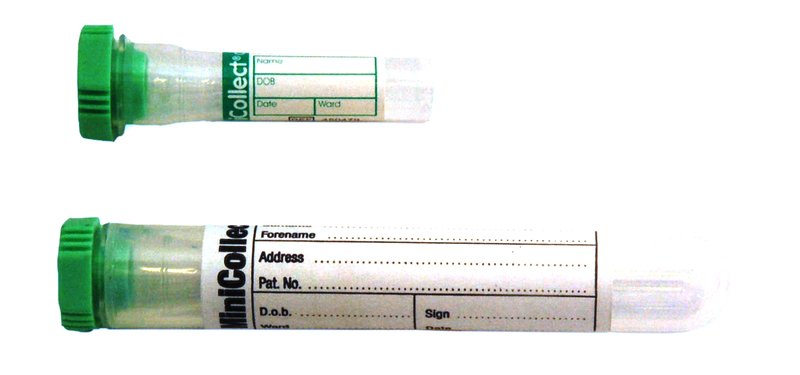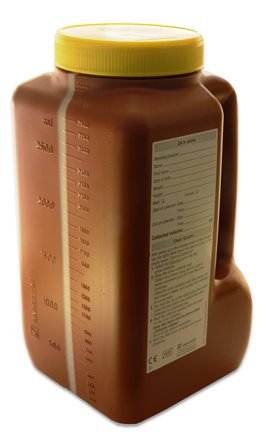Potassium (K)
Chemical Pathology
Notes
Potassium forms part of the standard U&E profile but can also be assayed in urine.
Sample requirements
For adults, blood taken into a 5mL gold top gel tube (or rust top for the Acute Unit)

For children, blood taken into a 3.5mL rust top gel tube

For neonates, blood taken into a 0.8mL minicollect lithium heparin tube. Please list the tests of particular interest so that some priority can be given to analysis if plasma volumes are small.

For 24 hour urine potassium, collect urine into a 3L brown bottle:-

For random urine potassium, send urine in a plain white narrow tube

Storage/transport
Do not store blood samples. Send as soon as possible at ambient temperature, to the laboratory (maximum of 8 hours). If clinically acceptable, urine samples can be stored refrigerated overnight if necessary.
Required information
Relevant clinical details including medication e.g. ACE inhibitors, fluid replacement.
For 24 hour urine collections, please indicate clearly start and finish dates and times.
The labelling of the request form and the sample must conform to the Policy for Specimen and Request Form Labelling for Pathology Users
Turnaround times
The assays are run throughout the day and night.
The in-lab turnaround time is normally less than 24 hours.
The test can be ordered as an urgent request.
Reference ranges
Serum potassium 3.5 - 5.3 mmol/L
Adult 24 hour urine potassium 25 - 125 mmol/24h
Further information
To learn more about potassium visit Lab Tests Online or access the potassium monograph of the Association for Clinical Biochemistry and Laboratory Medicine
Monograph of the Association for Clinical biochemistry and Laboratory Medicine